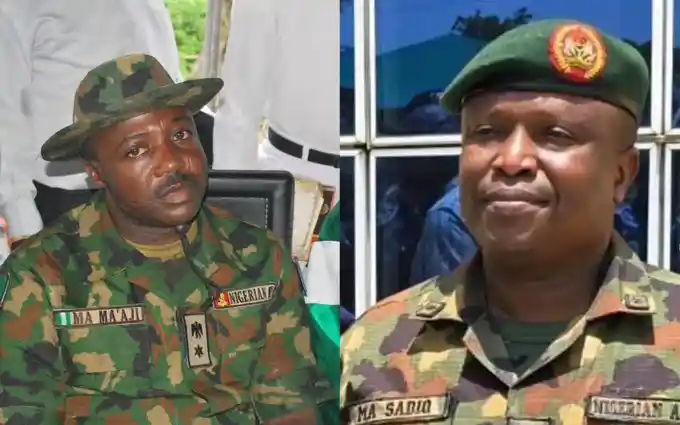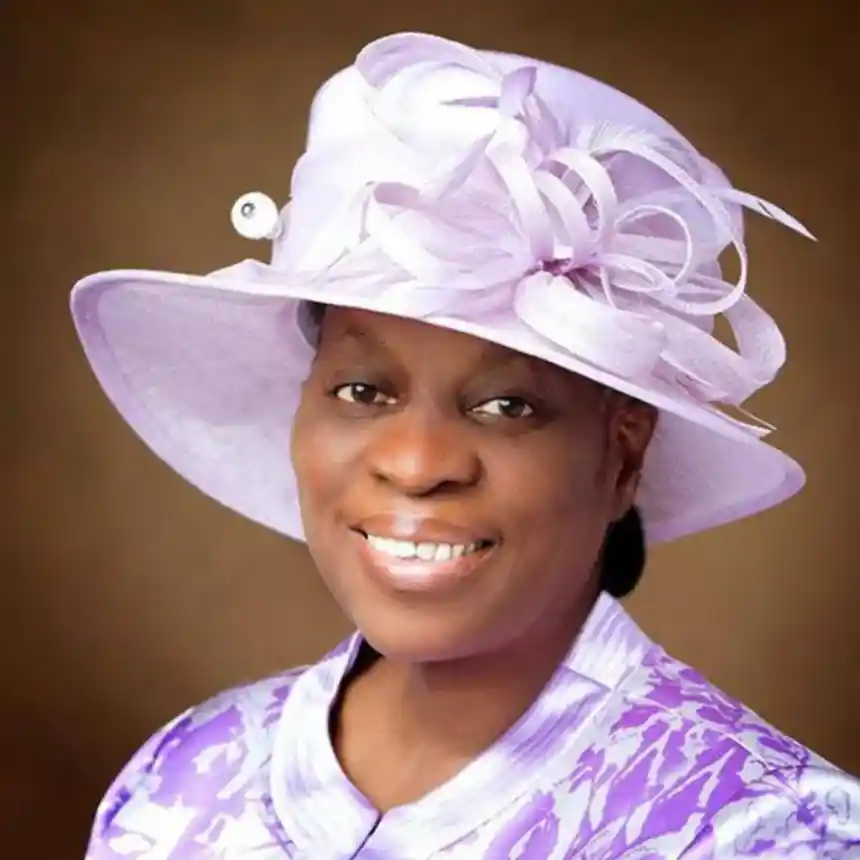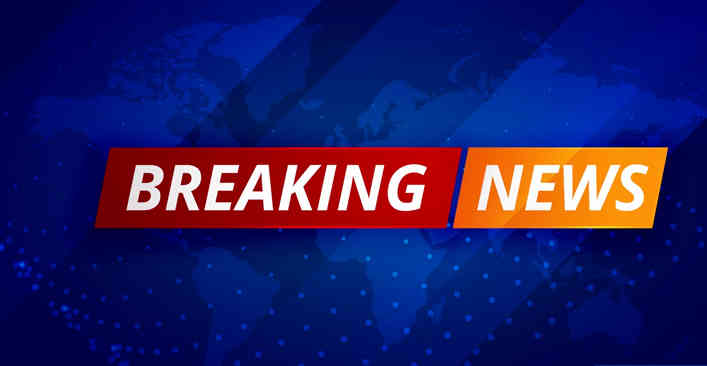The political landscape in Rivers State has taken a dramatic turn as a group of concerned electorates have dragged President Bola Tinubu, the Senate President, and other top government officials to court over what they describe as an illegal declaration of a state of emergency in the state.
The lawsuit, filed at the Federal High Court in Abuja on March 20, 2025, challenges the removal of Governor Siminalayi Fubara, the Deputy Governor, and the entire members of the Rivers State House of Assembly. The plaintiffs argue that the action violates democratic principles and undermines the rights of Rivers State citizens to participate in governance.
Legal Challenge Against the Federal Government
The case, marked FHC/CS/550/2025, was initiated by Daniel Wariboko, a lawyer who is acting on behalf of himself and all registered voters in Rivers State. His lawsuit, filed through an Originating Summons, seeks to clarify whether the federal government had the legal authority to suspend a democratically elected state government.
The suit names the following as defendants:
- President Bola Tinubu
- The Senate President
- The Speaker of the House of Representatives
- The National Assembly of Nigeria
- The Attorney General of the Federation
Wariboko argues that, under Section 305 of the 1999 Constitution (as amended), a conflict between a state governor and the House of Assembly is not a valid reason for declaring a state of emergency.
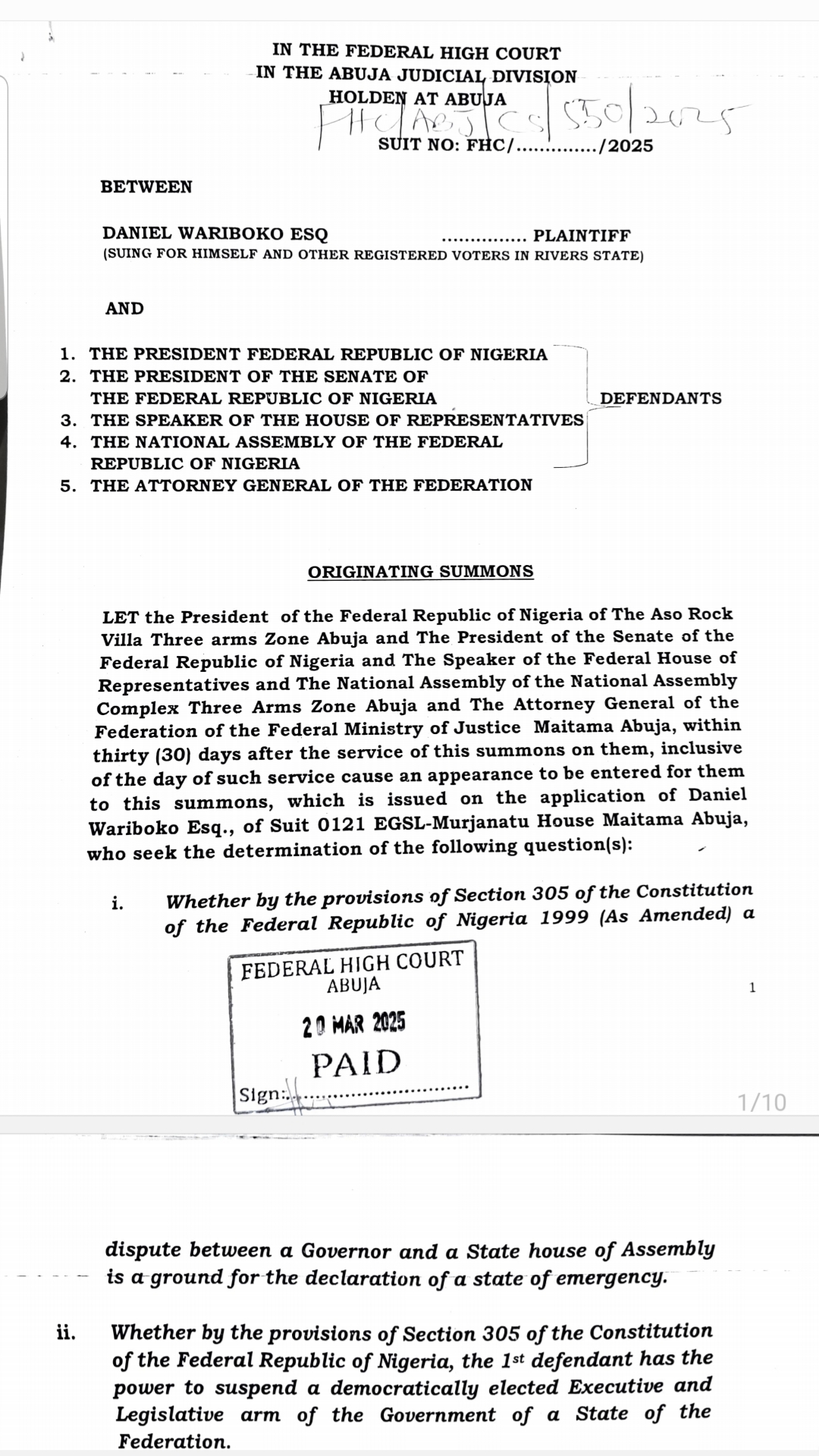
Key Questions Raised in Court
The plaintiff has asked the court to determine whether:
| Legal Question | Key Concern |
|---|---|
| Can the President legally suspend an elected governor, deputy governor, and state legislators? | The Constitution does not explicitly grant the President this power. |
| Can the President appoint a Sole Administrator to run a state when there is an elected government? | A Sole Administrator is not recognized under Nigeria’s democratic system. |
| Is the March 18, 2025, state of emergency declaration constitutional? | The plaintiff argues it is unconstitutional and violates democratic principles. |
| Does the declaration violate the rights of Rivers State citizens under Article 13 of the African Charter on Human and Peoples’ Rights? | Citizens have the right to participate in their government. |
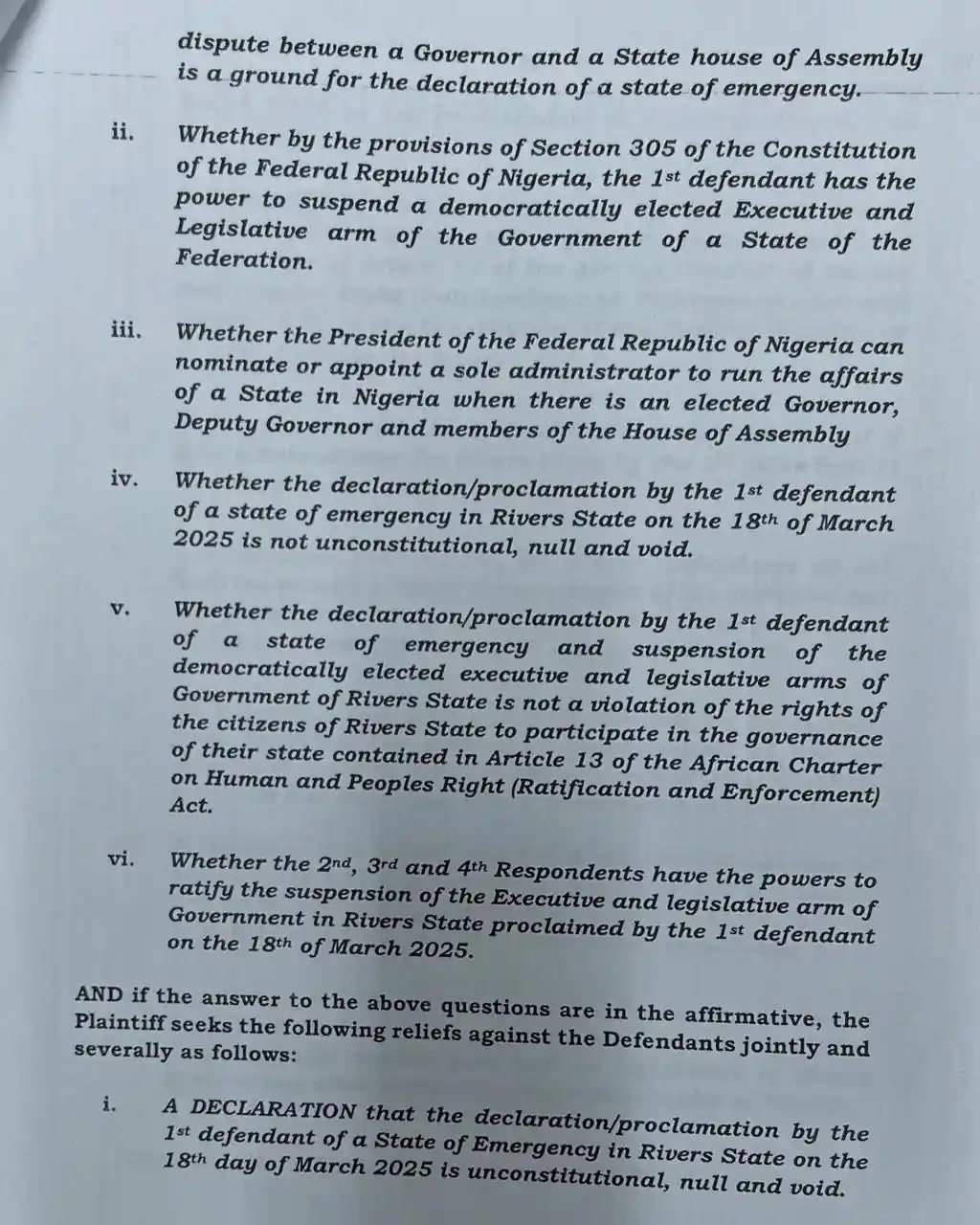
If the court rules in favor of Wariboko, it could set a major legal precedent regarding the limits of presidential power over state governments.
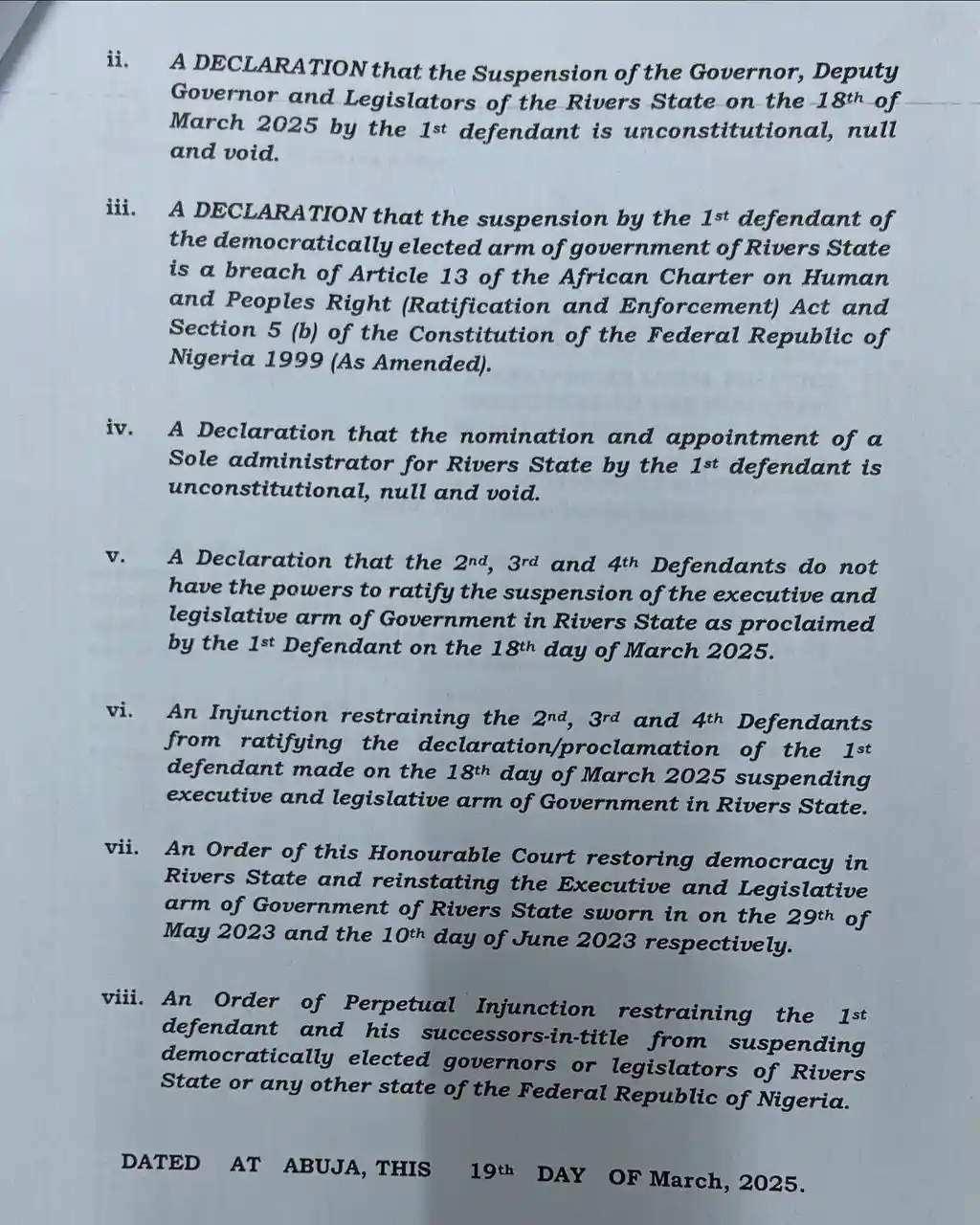
Allegations of Unconstitutional Governance
Wariboko’s legal team, led by Fidel Bassey, Esq., of Transafrican Legal Practice, argues that the suspension of the elected government in Rivers State violates multiple sections of the Nigerian Constitution and international human rights laws.
Some of the reliefs sought by the plaintiff include:
- A declaration that the suspension of the Governor, Deputy Governor, and House of Assembly members is unconstitutional, null, and void.
- A declaration that appointing a Sole Administrator to govern the state violates Nigerian law.
- An injunction preventing the Senate and House of Representatives from ratifying the suspension of the Rivers State government.
- An order restoring democracy in Rivers State by reinstating the elected Executive and Legislative arms of government.
- A perpetual injunction preventing the federal government from removing democratically elected governors or legislators in the future.
The case is expected to test the judiciary’s role in protecting democracy and preventing federal overreach into state governance.
Implications for Nigerian Democracy
The Rivers State crisis raises important questions about the balance of power between the federal and state governments. If the court rules in favor of the plaintiff, it could:
- Strengthen the autonomy of state governments by affirming that a state of emergency cannot be used as a political tool.
- Clarify the constitutional limits of presidential power, ensuring that future administrations respect democratic processes.
- Set a legal precedent for other states, preventing similar interventions in the future.
However, if the court sides with the federal government, it could give the President greater authority to interfere in state affairs, potentially leading to future conflicts between the executive and state governors.
A Defining Moment for Nigerian Democracy
As the court prepares to hear this case, all eyes will be on the Nigerian judiciary to determine whether the suspension of Rivers State’s elected government was legal. The outcome will shape the future of federal-state relations and define the limits of executive power in Nigeria.
With democracy at stake, the people of Rivers State—and indeed all Nigerians—are waiting to see whether justice will be served.


